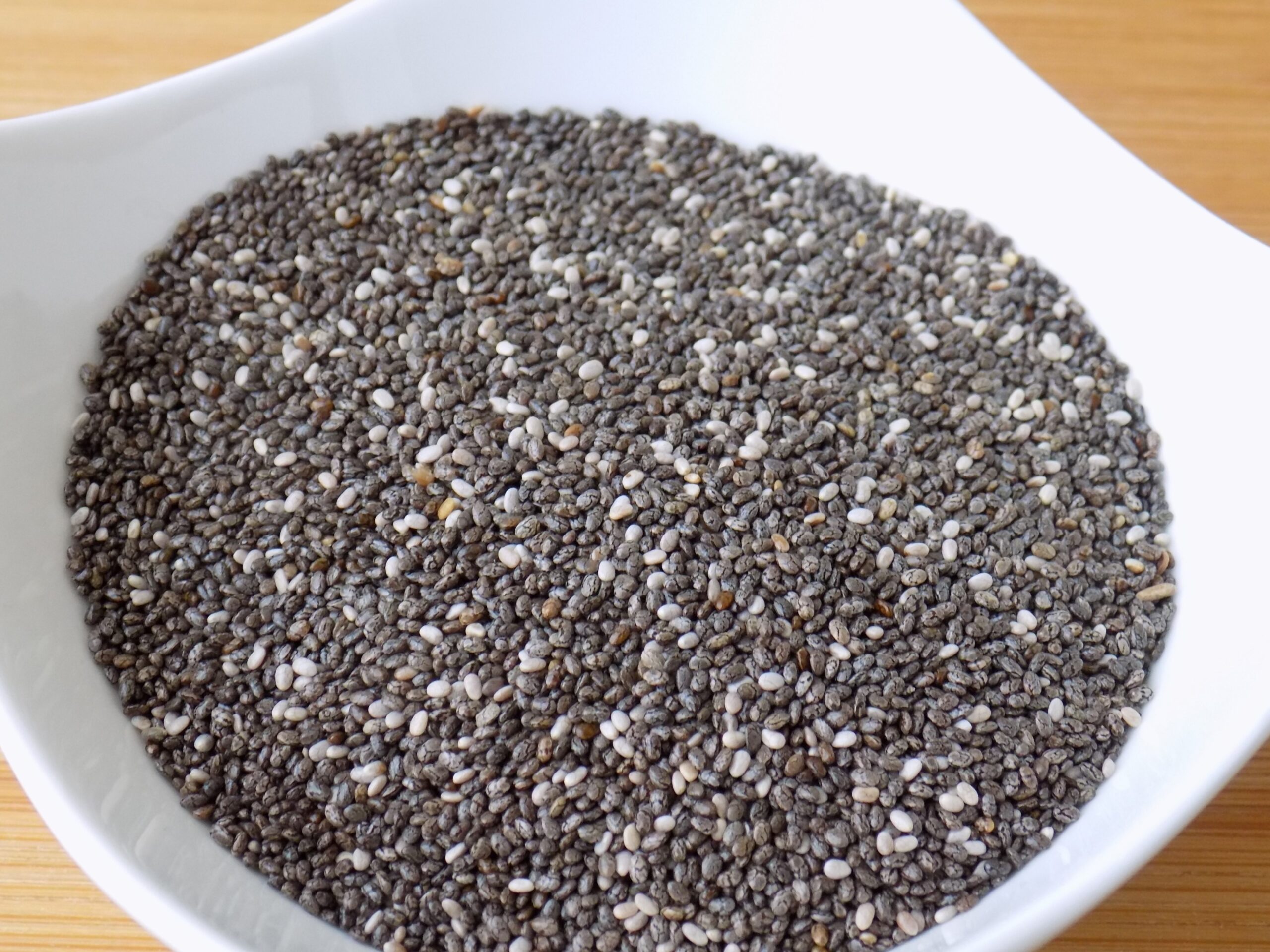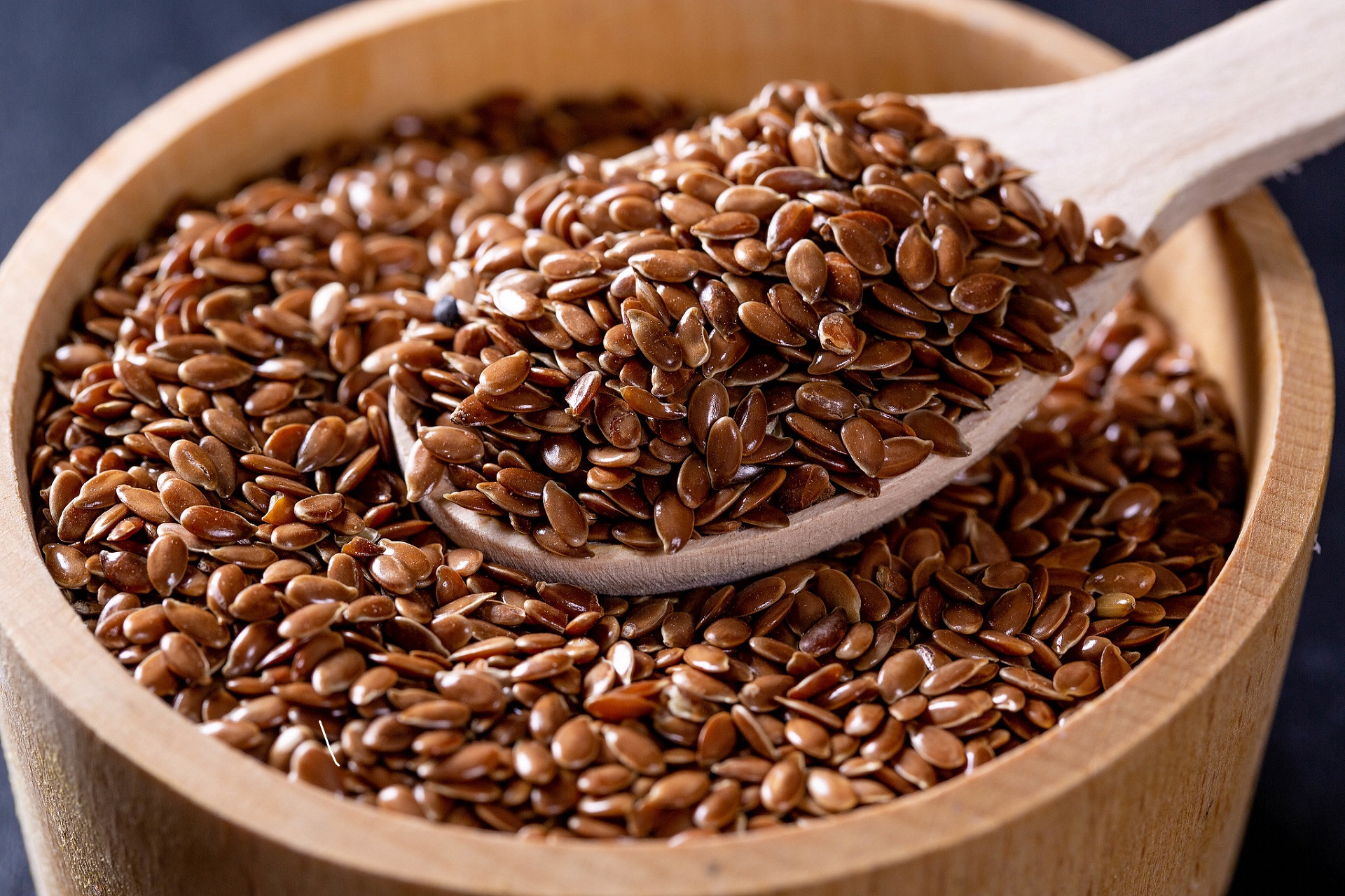Chia seeds have been gaining popularity in recent years, and for good reason. These tiny seeds are packed with nutrients and offer many health benefits. In this blog post, we’ll explore the health benefits of chia seeds and how you can incorporate them into your diet.

Chia seeds have been studied for their potential health benefits. Here are some of the health benefits of chia seeds Which are useful for everyone.
High in Fiber
- Chia seeds are a great source of fiber, with just one ounce providing nearly 11 grams of fiber.
- Fiber is important for maintaining digestive health, reducing the risk of chronic diseases such as heart disease and diabetes, and promoting feelings of fullness and satiety.
Rich in Omega-3 Fatty Acids
- One of the best plant-based sources of omega-3 fatty acids, which are important for maintaining heart health and reducing inflammation in the body, is chia seeds.
- Just one ounce of chia seeds provides 4,915 milligrams of omega-3 fatty acids.
Good Source of Protein
- Chia seeds are also a good source of protein, with one ounce providing 4.7 grams of protein.
- Protein is important for building and repairing tissues, promoting muscle growth, and maintaining a healthy immune system.
High in Antioxidants
- Chia seeds are a rich source of antioxidants, which are important for protecting the body against damage from free radicals and reducing the risk of chronic diseases.
- Antioxidants can also help to slow down the aging process and promote healthy skin.
Good Source of Important Minerals
- Chia seeds are a good source of several important minerals, including calcium, magnesium, and phosphorus.
- Calcium is important for maintaining healthy bones, while magnesium is important for muscle and nerve function, and phosphorus is important for kidney function and bone health.
Low in Calories
- Despite their impressive nutrient content, chia seeds are relatively low in calories, with just 137 calories in one ounce.
- This makes them a great addition to a weight-loss diet, as they can help to keep you feeling full and satisfied without adding too many calories.
Gluten-Free
- Chia seeds are naturally gluten-free, making them a great option for people with gluten sensitivities or celiac disease.
- In many recipes, you can use chia seeds as a substitute for gluten-containing grains, such as wheat or barley.
Blood Sugar Regulation
- The low glycemic index of chia seeds means that they digest slowly and do not cause a rapid increase in blood sugar levels.
- This makes them a good option for people with diabetes or anyone looking to regulate their blood sugar levels.
Skin Health
- Chia seeds are a good source of zinc, which is important for maintaining healthy skin.
- Collagen synthesis involves zinc and can promote wound healing and prevent acne.
Versatile
- Chia seeds are incredibly versatile and used in a variety of ways.
- Chia seeds are versatile; add to smoothies, oatmeal, yogurt, baked goods, or use as a thickener.
- Chia seed pudding is a popular and delicious way to enjoy chia seeds, and can be flavored in many different ways.
Heart Health
- Chia seeds can improve several markers of heart health, such as reducing blood pressure and cholesterol levels.
- This may be due to their high content of omega-3 fatty acids and fiber, both of which have been linked to improved heart health.
Digestive Health
- Chia seeds can improve digestive health by promoting the growth of beneficial bacteria in the gut.
- This may be due to their high fiber content, which helps to keep the digestive system moving smoothly and prevent constipation.
Reduced Inflammation
- Chia seeds have anti-inflammatory properties, which may help to reduce inflammation in the body and lower the risk of chronic diseases such as arthritis and heart disease.
- Omega-3 fatty acids, which are abundant in chia seeds, have been shown to have anti-inflammatory effects.
Improved Brain Function
- Chia seeds may help to improve brain function and reduce the risk of cognitive decline and dementia.
- This may be due to their high content of omega-3 fatty acids, which are important for brain health.
Reduced Cancer Risk
- Chia seeds have been shown to have anticancer properties, and help to reduce the risk of certain types of cancer.
- This may be due to their high content of antioxidants, which can help to protect cells from damage.
Diabetes
- Chia seeds have helps to regulate blood sugar levels and may be a useful addition to a diabetes management plan.
High Blood Pressure
- Chia seeds helps to lower blood pressure, which can help to reduce the risk of heart disease and stroke.
Osteoporosis
- Chia seeds are a good source of calcium, which is important for maintaining healthy bones and reducing the risk of osteoporosis.
Depression and Anxiety
- Chia seeds are a good source of omega-3 fatty acids, which have been linked to improved mood and reduced symptoms of depression and anxiety.
- So, if you want to incorporate chia seeds into your diet to reap their many health benefits? Here are some tips:
- Add them to smoothies or yogurt for a nutrient boost.
- Mix them into oatmeal or cereal for added fiber and protein.
- Use them as a thickener in sauces or dressings.
- Make chia seed pudding by soaking chia seeds in milk or a milk alternative and sweetening with honey or maple syrup.
- Use them as a substitute for eggs in vegan baking recipes.
Weight Loss
- Chia seeds are often touted as a weight loss aid, and for good reason.
- The high fiber content in chia seeds helps to keep you feeling full and satisfied, which can prevent overeating and snacking between meals.
- Chia seeds are low in calories and high in protein, which can help to support weight loss and prevent muscle loss.
Reduce Belly Fat
- Chia seeds may also help to reduce belly fat, which is often associated with an increased risk of heart disease and other health problems.
- In one study, overweight adults who added chia seeds to their diet for 12 weeks experienced a significant reduction in waist circumference compared to a control group.
- So, how can you use chia seeds for weight loss? Here are some tips:
- Add them to your morning smoothie for a filling breakfast.
- Use them as a topping for salads or soups to add texture and crunch.
- Mix them into your favorite nut butter for a high-protein snack.
- Make chia seed pudding for a healthy dessert option.
- Use them as a thickener in low-calorie sauces or dressings.
It’s important to note that while chia seeds can be a helpful aid in weight loss, they are not a magic solution on their own. To achieve lasting weight loss, it’s important to focus on a healthy, balanced diet and regular exercise.
Overall, chia seeds are a versatile and nutrient-dense food that offer many health benefits, including weight loss and reduced belly fat. So simply if you want to improve your health or support your weight loss goals, chia seeds are a great addition to any diet. So, start incorporating them into your meals and enjoy the many benefits that chia seeds have to offer.
